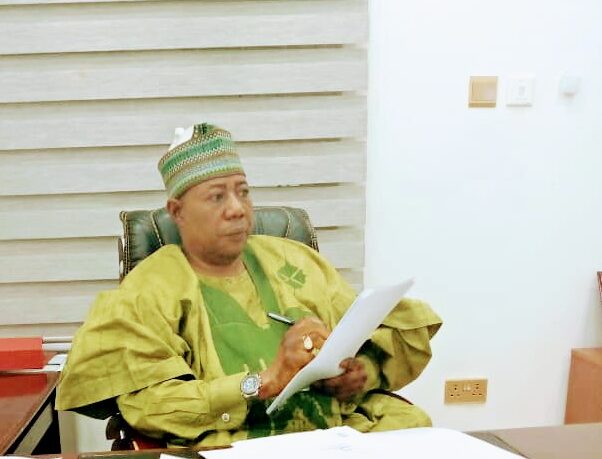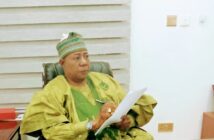All over the globe, economy is the lifewire of any government. This is because every other variable depends on it. And for any economy to live up to its expectation of providing opportunities for citizens, it needs massive investment inflow. Experience has however shown that no single economy, the world over, has the potential or capacity to sustain itself. This explains why governments wave the olive branch at investors, both internal and external, wooing them to invest in their economies.
Before now, one of the biggest hurdles to attracting Foreign Direct Investment (FDI) to Nigeria is difficult business environment, which is accentuated by demand for bribes before licensing and poor infrastructures. But since 2015, we have witnessed a gradual paradigm shift. It is important to restate here that the Buhari administration is doing everything possible to revitalise the nation’s economy, especially with emphasis on the non-oil sectors, which is a viable way of propelling diversification of the economy.
Worried by the abysmal rating of Nigeria in the area of Ease of Doing Business (EDB), President Muhammadu Buhari took deliberate policy steps to reverse the ugly rating of EDB in Nigeria. The Buhari administration is on record as being the first to consciously determine to address Nigeria’s perennially low ranking in global ease of doing business (EDB).
In pursuance of the declared goal to improve Nigeria’s EDB ratings, the president inaugurated the Presidential Enabling Business Environment Council (PEBEC) chaired by his deputy, Vice President Yemi Osinbajo , in July 2016. PEBEC’s mandate is to make recommendations on institutional reforms to promote Nigeria’s investment attractiveness. In February 2017, PEBEC approved a 60-Day National Action Plan “with clear deliverables and timelines for [MDAs] responsible for implementing each line item in the Plan.
On May 18, 2017, the administration issued three Executive Orders (EOs), effective immediately and targeting public service improvements to touch every sphere of Nigeria’s economy. Not long after, the positive effects of the steps started manifesting with Nigeria gaining on the world index of EDB. From the 145th position in 2019, it dropped to 131st in 2020.
Recently, the president led a delegation to EXPO 2020 Dubai, with the theme, “Connecting Minds, Creating the Future”. This created the environment for Nigeria to join over 190 countries to forge true and meaningful business partnerships.
The Expo provided a veritable opportunity for the Nigerian delegation to highlight significant strides in the economy in the last six years as a basis for making the country an important destination for foreign direct investment. Aside the tour of the Nigerian Pavilion at the Expo, Nigeria’s National Day at the show, the president also received in audience prospective investors.
President Buhari also met with Sheikh Mohamed bin Zayed Al Nahyan, Crown Prince of Abu Dhabi and Deputy Supreme Commander of the UAE Armed Forces and Sheikh Mohammed bin Rashid Al Maktoum, Vice President and Prime Minister of the UAE and Ruler of the Emirate of Dubai. Buhari was also a Special Guest of Honour at the special Trade and Investment Forum themed: Unveiling Investment Opportunities in Nigeria”, put together by the Nigerian Ministry of Industry, Trade and Investment.’’
On his part, Vice president Osinbajo, sometimes ago, stormed the United States for a road show to promote foreign direct investments. He embarked on this investment crusade as a way of reassuring American and other international investors that Nigeria is not only a fertile place to have their investments on the continent of Africa, but also that the present government of President Buhari is removing official bottlenecks and creating more conducive environment for foreign investment. The roadshow, which included a visit to the Silicon Valley, was a way to trigger American techpreneurs to consider Nigeria in their investment loop.
President Buhari, on October 26, 2021, was in far away Riyadh, Saudi Arabia, to attend the 5th Edition of ‘The Future Investment Initiative Summit’. He took along with him key government officials and a good number of private sector operators. Buhari used the forum to address participants on ‘Investing in Humanity: The Nigerian Perspective’. Buhari highlighted the investment potentials of Nigeria (human and material) to the global audience.
Also, President Buhari was in Paris, France, at the Nigeria International Partnership Forum, where he told investors that the outlook on Nigerian economy remains bright, with sustained investments in infrastructure, particularly ICT, that favour global businesses and a friendly regulatory environment that supports Foreign Direct Investments (FDI).
Buhari immediately departed Paris to join other African leaders in South Africa for the opening ceremony of the second Intra-African Trade Fair (IATF) 2021. The trade expo is to attract $40 billion investments to the continent. It also promises to create the enabling environment for businesses to thrive across the African continent; bring to fruition the lofty ideas behind the creation of AfCFTA by providing the platform to further identify and proffer solutions to challenges militating against intra-African trade; and generate market information needed to connect buyers and sellers throughout the continent.
Having robust engagements with investors is one thing, but adequate social and security infrastructures to support security of investment is another ball game altogether. In this regard, the Buhari and Osinbajo have thrown everything to the works to ensure that railways are up and running. Significant landmark has been achieved to the praise and admiration of the world. With the quality of railway the government is delivering, coupled with massive road reconstruction across the country, there is no doubt the Buhari-led government has demonstrated capacity, resilience and the political will to map the Nigerian economy on a path of long and sustained growth.
For those of us with job schedules that require we understudy the security, economic and political systems of other countries, especially developed ones, it has been a voyage of discovery on how successful big economies of the world got it right. In far away Europe, Asia and the African continents where I have been part of the team studying their stratagic investment, development, security and economic policies, as well as diversification plans, experts have attest to the fact that there is no difference between what they do and what the Nigerian government under Buhari and his deputy, Osinbajo, is putting in place. Corroborating this, a renown American Professor, Kenneth Bowman, confided in me during the World Investment Development Summit in Washington DC that very soon other countries would start thronging Nigeria to understudy President Buhari’s investment and economic development plan, which he said is rated as the best in Subsaharan Africa.
Perhaps, one of such investment drives Prof Bowman was referring to is the recent signing of the Petroleum Industrial Bill into law by President Buhari. The new Petroleum Industrial Act (PIA) has created an enabling environment for both local and foreign investors to become active players in revamping the Nigerian oil and gas sector.
Apart from the economic boost, Buhari, by that singular act, has made it clear that funds invested by investors are secured because the new normal in that sector is such that won’t allow hackers, fraudsters and other corrupt officials to tamper with monies put by investors as well the common patrimony. Unlike under past administrations, if you dare loot the nation’s coffers under the Buhari administration, you will face the long arm of the law as you keep a date with the country’s financial crimes agencies. This is one guarantee the international community needs to look the way of Nigeria.
– Ibrahim is director, Communications and Strategic Planning, of the Presidential Support Committee (PSC).



